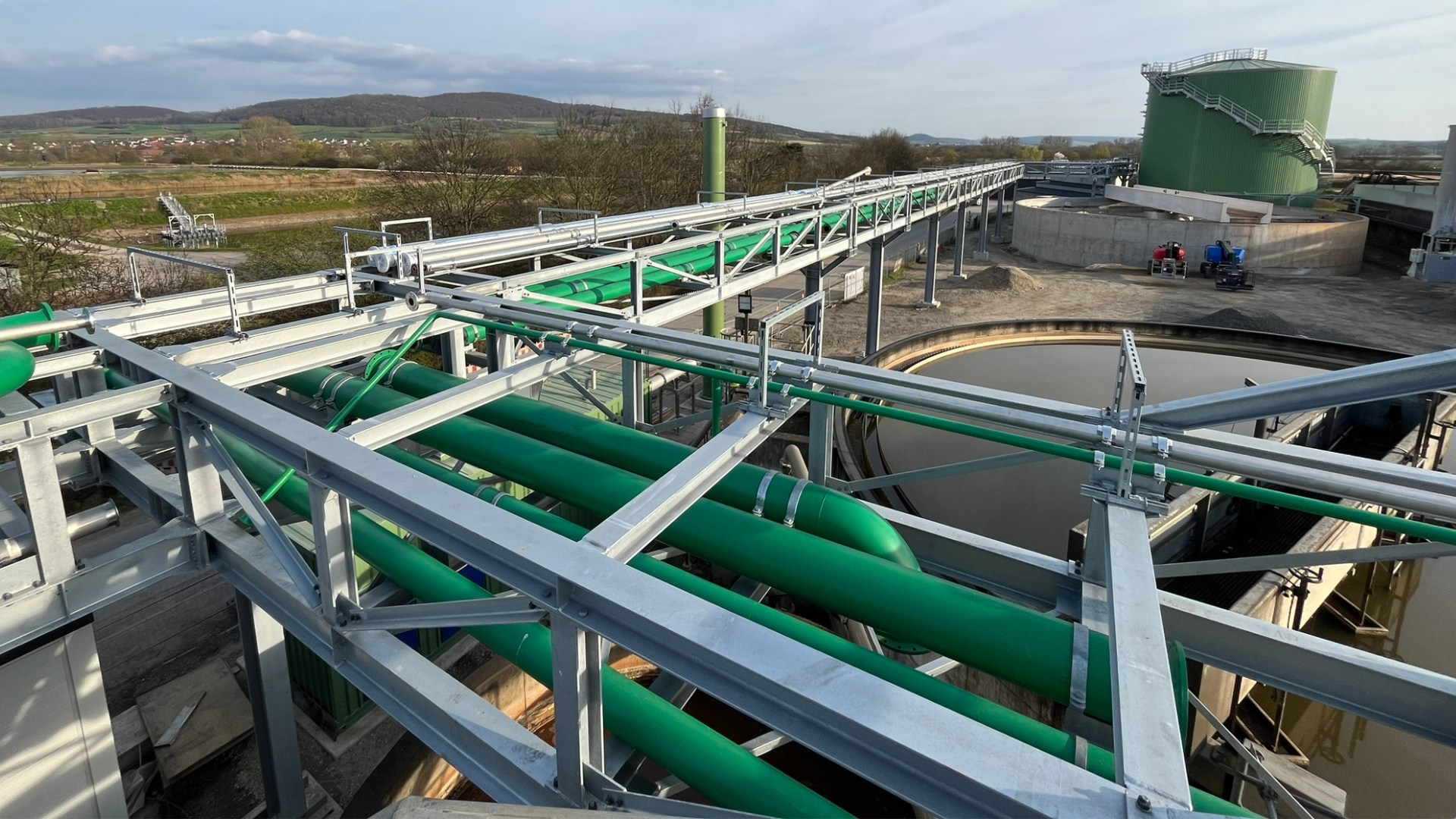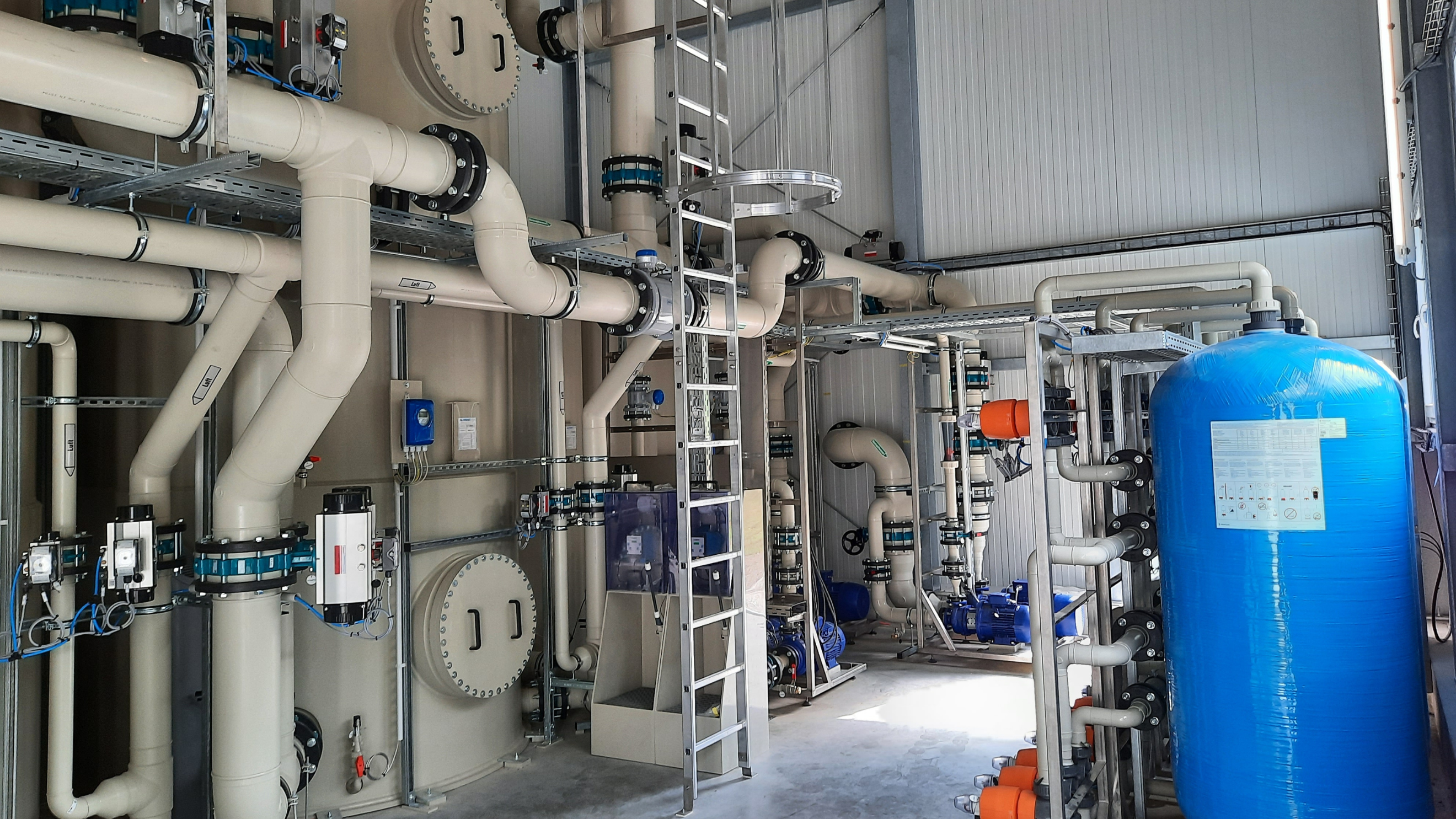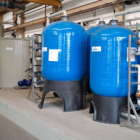The Zahn-Wellens test, named after the scientists Hans Zahn and Carl Wellens, is an established method for assessing the biodegradability of organic substances in wastewater treatment. This test is used in particular in industrial water and wastewater technology to test the biodegradability of chemicals, process wastewater or organic residues and to assess their impact on biological reactors.
The results of the Zahn-Wellens test provide important information for the selection and optimization of treatment processes, especially in biological treatment processes such as the activated sludge process or sequencing batch reactors (SBR). The test is standardized according to the OECD 302 B standard.
Table of contents
Purpose of the tooth waviness test
The Zahn-Wellens test is primarily used to assess the biodegradability of persistent or persistent organic compounds.
- Primary degradation: Testing whether the substances are structurally altered or degraded by microorganisms.
- Mineralization: Determination of whether the substances are completely degraded to carbon dioxide (CO₂) and water (H₂O).
- Inhibition potential: Assessment of whether the substances tested have an inhibitory effect on biological activity, e.g. through toxicity.
The test provides quantitative data on the biochemical oxygen demand (BOD) and the residual organic load, which allows conclusions to be drawn about the suitability of biological treatment processes.
Test principle
In the Zahn-Wellens test, an activated sludge culture is added to a wastewater sample or an organic substance in a laboratory reactor under defined conditions. Over a period of up to 28 days, the degradation rate of the organic material is determined by measuring the chemical oxygen demand (COD) or the dissolved organic carbon (DOC).
Procedure of the test
Preparation of the reactor mixture:
- Wastewater or substance sample is combined with a nutrient solution (contains nitrogen and phosphorus) and an active activated sludge culture in a reactor.
- Initial DOC or COD concentrations are measured.
Aerobic conditions:
- The reactor is continuously aerated to ensure an aerobic metabolism of the microorganisms.
Sampling:
- Samples are taken at regular intervals, filtered and analyzed for DOC or COD.
Data analysis:
- The decrease in DOC or COD values is documented over time. A decrease of 70 % or more is considered an indication of easy biodegradability.

Photo: Our anaerobic biogas reactor ALMA BHU GMR: The dimensioning and design of the reactor are based on the feed load in order to ensure optimum biogas production and process stability.
Technical parameters and conditions
- Substrate concentration: DOC concentration typically between 10-40 mg/L.
- Reactor temperature: Maintained at a constant 20-25 °C to ensure optimum conditions for biological activity.
- Sludge concentration: Activated sludge concentration in the range of 1-4 g dry matter/L.
- Aeration: Oxygen saturation in the reactor is maintained by continuous aeration.
Evaluation of the test results
The test results are given as a percentage decrease in DOC or COD and are categorized as follows:
- Readily biodegradable: > 70 % reduction within 28 days.
- Partially degradable: 20-70 % decrease.
- Schwer abbaubar/persistent: < 20 % Abnahme.
In addition, it is checked whether inhibitory effects on the activated sludge culture occur, e.g. through a stagnating decrease in the degradation parameters.
Applications in industrial water and wastewater technology
1. evaluation of new chemicals
Before new process chemicals or cleaning agents are introduced into the plant, their biodegradability is assessed using the Zahn-Wellens test.
- Industrial sectors: Chemical industry, food industry, pharmaceutical industry.
- Objective: To ensure that new substances do not have a negative impact on biological wastewater treatment plants.
2. inspection of industrial wastewater
Industrial wastewater often contains organic substances that are difficult to break down and can impair the operation of biological reactors. The Zahn-Wellens test helps with the:
- Identification of toxic or inhibitory substances that inhibit the activity of microorganisms.
- Planning of pre-treatments, such as chemical oxidation or adsorption, to remove persistent compounds.

Photo: Our ALMA BioFil Compact biofiltration system for treating wastewater with residual organic contamination
3. optimization of biological treatment processes
The test results provide information on whether a substance:
- Can be directly biodegraded.
- Additional process steps such as biofiltration or anaerobic treatment is required.
Limits and challenges
Reproducibility:
- Results may vary due to the specific composition of the activated sludge or variations in the test conditions.
Poorly degradable compounds:
- Some organic substances are not biodegradable and require alternative processes such as UV oxidation or precipitation & flocculation.
Influence of toxic substances:
- Highly toxic substances can inhibit the degradation process, which falsifies the results.
Practical relevance and advantages
- Regulatory requirements: The Zahn-Wellens test meets international standards (e.g. OECD 302 B) and is often required in approval procedures.
- Cost efficiency: The evaluation of degradability can help to avoid costly problems in biological wastewater treatment plants at an early stage.
- Process reliability: The test provides valuable data for operational management and enables targeted optimization of treatment processes.
Conclusion
The Zahn-Wellens test is an indispensable tool in industrial water and wastewater treatment. It enables a well-founded assessment of the biodegradability of organic substances and provides essential data for the selection, planning and optimization of treatment processes.
In combination with other analyses such as chemical characterization or toxicity tests, the Zahn-Wellens test helps to ensure process stability in biological plants and to develop environmentally friendly solutions for the treatment of wastewater.
For further information on our products, please feel free to contact us at any time!







